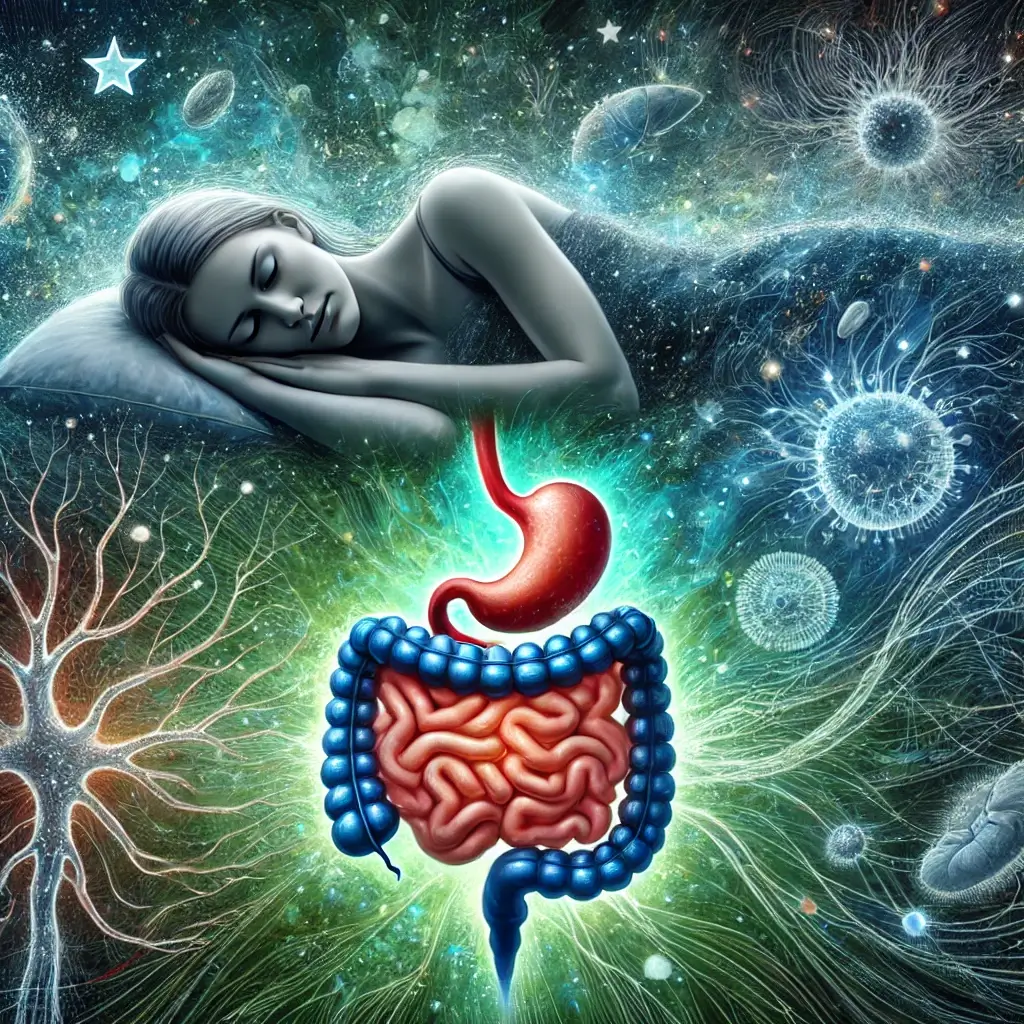The Foundation of Health: Sleep and Gut Connection
Sleep is one of the foundational pillars of health, yet it often takes a backseat to diet and exercise in health conversations. However, mounting evidence suggests that sleep plays a vital role in maintaining the health of the gut-brain axis, a bidirectional communication network that allows the gut and brain to influence each other’s functioning.
Impact of Compromised Sleep on Gut Health
When sleep is compromised, this delicate balance falters, leading to disruptions in gut motility, microbiome composition, and gut barrier integrity. These changes don’t just affect digestion but can also cascade into chronic health problems such as inflammation, immune dysfunction, and even mental health disorders like anxiety and depression. In an era where stress, screen time, and irregular schedules are ubiquitous, understanding the sleep-gut connection has never been more important.
Introduction to Sleep-Gut Relationship
This article delves into the fascinating relationship between sleep and gut health, supported by groundbreaking research, and offers practical tips to help you prioritize sleep and, in turn, nurture your digestive system.
Understanding Gut Motility Regulation
Sleep regulates the movement of food through the digestive tract, a process known as gut motility. During sleep, the gut undergoes periodic contractions that aid digestion and prevent stagnation. However, sleep deprivation disrupts these rhythms. A 2016 study published in Digestive Diseases and Sciences found that individuals who experienced sleep deprivation showed slower gut motility, leading to symptoms such as bloating and constipation (Depoorter et al., 2016).
The Importance of Gut Barrier Function
The gut barrier acts as a protective lining, preventing harmful substances and bacteria from entering the bloodstream. Chronic sleep deprivation weakens this barrier, increasing intestinal permeability—a condition often referred to as “leaky gut.” A 2019 study in Nature Communications using mouse models demonstrated that prolonged sleep disruption led to a compromised gut barrier and heightened systemic inflammation (Chen et al., 2019). These findings underline the importance of restorative sleep for maintaining gut integrity.
Maintaining Microbiome Balance Through Sleep
The gut microbiome, a complex community of trillions of microorganisms, relies on sleep for its balance. Sleep disturbances have been shown to alter the composition of the microbiome, reducing beneficial bacteria and increasing harmful strains. A 2018 study published in Cell Reports highlighted that sleep deprivation in mice led to significant shifts in microbiome diversity, which could negatively impact digestion and immune health (Zhou et al., 2018).
Evidence-Based Sleep and Gut Health Strategies
Recognizing the profound impact of sleep on gut health, it’s essential to adopt habits that promote restful sleep. Here are evidence-based strategies:
Establish a Consistent Sleep Schedule: Going to bed and waking up at the same time each day helps regulate the body’s internal clock. This consistency is crucial for gut motility and microbial stability.
Create a Sleep-Inducing Environment: A dark, quiet, and cool bedroom, coupled with comfortable bedding, fosters better sleep quality.
Practice Pre-Sleep Relaxation: Engage in calming activities like reading, meditation, or light stretching before bed. Avoid screen time for at least an hour before sleep, as blue light from devices can disrupt melatonin production.
Monitor Diet and Sleep Quality: Avoid caffeine and alcohol near bedtime, as they can interfere with sleep quality. Incorporate gut-friendly foods like yogurt, bananas, and almonds into your diet.
Incorporate Regular Exercise Routine: Physical activity promotes better sleep, but intense workouts should be scheduled earlier in the day to avoid overstimulation.
Manage Chronic Stress Levels: Chronic stress impairs sleep and disrupts the gut-brain axis. Techniques like mindfulness, yoga, or deep breathing can help mitigate stress and enhance sleep quality.
The Vital Role of Sleep in Overall Health
Sleep is not merely a period of rest; it is a vital process that underpins gut health and, by extension, overall well-being. From maintaining gut motility and barrier integrity to preserving microbiome balance, sleep exerts a powerful influence on the digestive system. By adopting sleep-friendly habits and recognizing its role in health, you can take proactive steps to nurture both your gut and your entire body.
Seeking Professional Help for Sleep Issues
If sleep disturbances persist despite these measures, consult a healthcare professional to explore potential underlying conditions such as sleep apnea or chronic insomnia. Prioritize sleep today for a healthier gut and a brighter tomorrow.
Research References
Chen, Z., Wang, Z., Zhou, W., Wang, Y., Liu, Y., & Li, L. (2019). Sleep deprivation weakens the gut barrier and increases gut permeability in mice. Nature Communications, 10(1), 1-11.
Depoorter, M. P., Masclee, A. A., & Brummelman, F. J. (2016). The gut-brain axis in health and disease: interactions between enteric microbiota, gut motility and central regulation. Digestive Diseases and Sciences, 61(8), 2035-2045.
Zhou, W., Chen, Z., Wang, Z., & Li, L. (2018). Sleep deprivation and gut microbiota: A bidirectional influence. Cell Reports, 23(4), 1100-1107.
